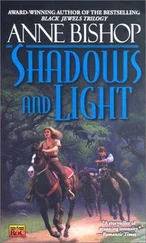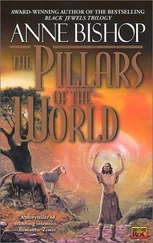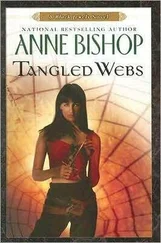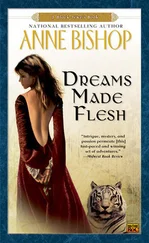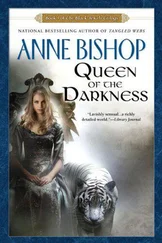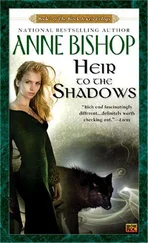“Good morning,” Monty said, continuing to the car.
The man didn’t reply. Just watched him.
“Sir?” Kowalski said as soon as Monty got in the car.
“We’ve met enough residents of the Courtyard for one day,” Monty replied. “Give me a tour of the district.”
“Glad to.”
“What qualities do you think a Liaison normally has?” he asked when they drove away from the Courtyard.
“Moxie. Savvy,” Kowalski replied without hesitation.
“Innocence?”
Kowalski gave Monty a startled look before turning his attention back to the road. “That’s not a label I would give to anyone who works for the Others.”
“I got the impression Ms. Corbyn lacks the maturity of her physical age. If I hadn’t seen her, I would have placed her at half her age.”
Kowalski gave him another look. “The Simple Life folk sometimes give that impression because they live without most of the technology that the rest of us use. You think she left the community on Great Island and took the job here?”
He’d never met any of the Simple Life folk, so he couldn’t offer an opinion, but he said, “It’s worth checking out.”
“Thing is, Lieutenant, the Others control everything on that island except the land they leased to the Simple Life community and a couple dozen families who live along the southern shore and make a living fishing, running the ferry, or working in the stores and shops that supply goods and services. A girl from that community would be used to seeing Others and might find it less scary to deal with them than be alone in the big city.”
The explanation might be as simple as that, Monty thought. But he still wondered if being in the Courtyard was the reason Meg Corbyn was so nervous, or if she had another reason to be afraid.
Asia swore under her breath. The damn Crows were paying too much attention to the Liaison’s Office, and if she kept driving past, one of them was going to realize they kept seeing the same car. Seeing the police car in the parking lot earlier had been reason enough to go on by. Her looks were memorable, and she didn’t want cops taking any notice of her. But she did want to get a look at the new liaison Simon had hired instead of her. By the time she had done the slide and spin on some of the side streets—where were the freaking plows?—and gotten back to the street entrance, the damn cops were pulled up in front of the Liaison’s Office!
She thought her luck had changed when she saw them drive away, but the earth native who sold sculptures and other artsy crap was going into the office, and there was something about him besides his size that made her uneasy.
Try again tomorrow, she thought.
As she flicked off the blinker, she realized the white van in front of her had done the same thing moments before.
“I guess I’m not the only one who is curious,” she muttered to herself. She smiled as she followed the van long enough to memorize the license plate. Then she pulled in to the first cleared parking area and wrote down the numbers. This was something she could tell Bigwig. He kept saying information was a valuable commodity. Knowing that someone was interested in the new Liaison was the kind of information he and the other backers might find profitable.
The experiment with the coffeemaker was an unqualified disaster, so Meg settled for a bowl of cereal and an apple—and promised herself a ten-minute break to run over to A Little Bite and get a large cup of coffee as soon as the shop opened.
Wearing the blue sweater and jeans again so the black outfit would still be clean, she made a second promise to stop at the clothing store in the Market Square and buy enough clothes to get her through the work days, or as many clothes as she could afford right now. How did the Others do laundry? Simon Wolfgard’s clothes hadn’t smelled, so the Others must have a way to wash clothes. She just had to find out where and how.
So many things to learn. So many things she knew only as images or snips of action. How was she going to find out what she needed to know without revealing how little she knew?
Those were thoughts for later. Now she had to finish getting ready for work.
Taking three carrots out of the refrigerator, she washed them, patted them dry, and set them on the cutting board. She pushed up the sleeves of her turtleneck and sweater, then pulled the large knife out of the cutting block.
Flesh and steel. Such an intimate dance.
Every cut brings you closer to the cut that kills you, Jean had said. If you keep using the razor once you’re free of this place, then you become your own killer.
The knife clattered on the counter. Meg stepped back, staring at the shiny blade as she rubbed her left forearm to relieve the pins-and-needles feeling under her skin. She got that feeling sometimes just before it was time for the next cut. If the cut was delayed, the sensation got so bad it felt like buzzing or, even worse, like something trying to chew its way out of her skin.
Just a small cut, she thought as she pulled the folding razor out of the pocket of her jeans. Just a small cut to see if the carrots will work, if the ponies will like me.
She tried to convince herself that nothing terrible would happen if this gesture of friendship didn’t work, and using up flesh for something insignificant was foolish. And how would the Others react to a fresh cut and the scent of blood? She hadn’t considered that when she took the job.
But she was pulling a couple of paper towels off the roll and making a pad on the counter next to the sink. She opened the razor, lined up the back edge with the first knuckle of her left index finger, then turned the razor so the honed edge rested against skin. She took a slow breath and pressed the razor against her finger, making a cut deep enough to scar.
Pain flooded her, a remembered agony from the times she’d been punished for lies or defiance. She saw the ponies and . . .
The pain was washed away by an orgasmic euphoria. This was the ecstasy the girls craved, the ecstasy that only came from the razor kissing skin. This . . .
Meg blinked. Swayed. Stared at the blood on the paper towels.
Something about the ponies.
In order to remember what you see, you have to swallow the words along with the pain, Jean had said. If you speak, what you saw will fade like a dream. You might remember wisps, but not enough to be useful to you.
She must have spoken, must have described what she had seen. But there was no one to hear the words, so the prophecy and whatever she might have learned about the ponies was lost.
She looked at the razor and considered making another cut. Then she looked at the clock. She’d lost too much time already.
Hurrying into the bathroom, Meg washed the cut, then found a partially used box of bandages and tape in the medicine chest above the sink. After tending to the cut, she hurried back to the kitchen, cleaned the razor, and slipped it in her jeans pocket. Then she grabbed the kitchen knife and cut up the carrots. If anyone noticed the bandage or smelled the blood, she could explain it. Accidents happened in kitchens all the time. A cut on her finger wouldn’t be unusual, wouldn’t give anyone a reason to wonder about her.
She put the carrot chunks in a bowl with a locking lid, tidied up the kitchen, then put on her outer gear and gathered the rest of her things. As she left the building and hurried down the back stairs, she was glad she didn’t have to walk far to get to work.
Читать дальше



